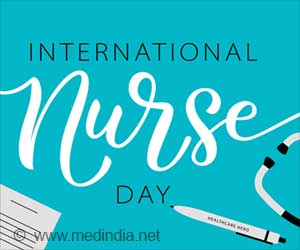Highlights
- The goal of the gene therapy was to assess its safety and to see if the desired levels of clotting factor was achieved.
- A blood-clotting factor level of 30% was observed after gene therapy, which was enough to lift the hemophilia B patients out of the severe category.
Lindsey A. George, MD, a hematologist at Children's Hospital of Philadelphia (CHOP) is the lead investigator of the phase 1/2 clinical trial which is sponsored by Spark Therapeutics, Inc. and Pfizer, Inc.
Hemophilia
Hemophilia is an inherited bleeding disorder where the patient's blood does not have a protein necessary for clotting blood. It affects the male child.
Patients with hemophilia B lack clotting factor IX.
Global statistics indicate that around 1 out of every 1000 people has a bleeding disorder.
India (11,586) ranks second to USA (13,276) in the number of patients affected by Hemophilia A.
Currently, India has over 70,000 patients affected with Hemophilia A and B. But compared to other countries, the prevalence of the disorder is low (0.7 per 1,00, 000 population) in India.
Clinical Trial
The clinical trial of 9 adult patients with hemophilia B, aged 18 to 52 years, was conducted using a single dose of a gene therapy.
It was engineered to enter patients' liver cells and direct the production of the blood clotting factor that they lack.
George notes, "Our goal in this trial was to evaluate the safety of the gene therapy product and secondarily, to determine if we could achieve levels of factor IX that could decrease bleeding events in patients."
She added, "These patients have a severe or moderate level of hemophilia, with baseline clotting factor level less than or equal to 2 percent of levels in healthy people. In current treatment, patients with hemophilia give themselves intravenous doses of factor IX up to a couple times a week. While generally effective, factor levels fluctuate, and patients may suffer painful, disabling joint bleeds when their clotting factor levels drop. Such a regimen requires significant planning of daily activities."
After the therapy, the patients maintained clotting factor levels of approximately 30%, which was enough to lift them out of the severe category.
With these new levels of clotting factor, hemophilia patients do not typically need to self-treat with factor to avoid bleeding events.
This represents a potential dramatic improvement in their quality of life and a shift in the way we think about treating hemophilia.
A factor level of 30% is near-normal, and patients would be expected to experience bleeding only in the event of major trauma or surgery.
The participants did not report any episodes of bleeding or the need for infusion.
Six of the first seven patients reported increased physical activity and all reported improved quality of life.
Two patients experienced an immune response to the gene therapy that was not critical, and could be treated with steroids. The patients are still undergoing treatment but have maintained factor IX activity without bleeding.
Next steps of the study will be to discuss the outlines of a larger, phase 3 clinical trial with the U.S. Food and Drug Administration.
No gene therapies for any genetic diseases have yet been approved for clinical use in the U.S.
References
- World Hemophilia Day 2016 - Treament for All - The Vision of All - (https://www.medindia.net/news/healthwatch/world-hemophilia-day-2016-treatment-for-all-the-vision-of-all-159274-1.htm)
Source-Medindia














